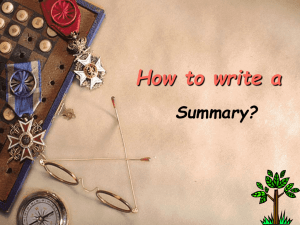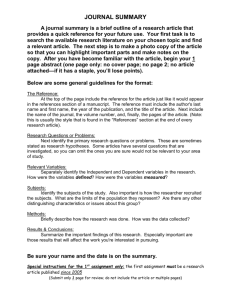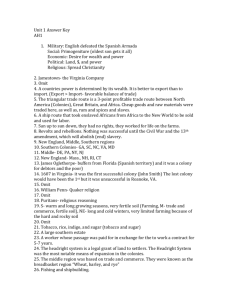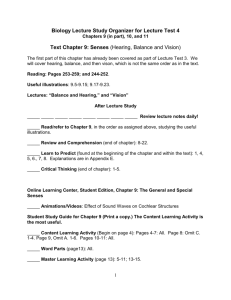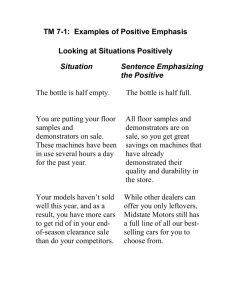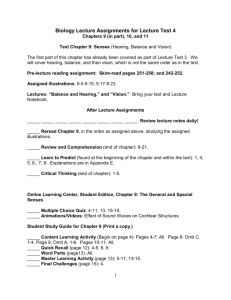Goals 1-10 Monster Review Key
advertisement
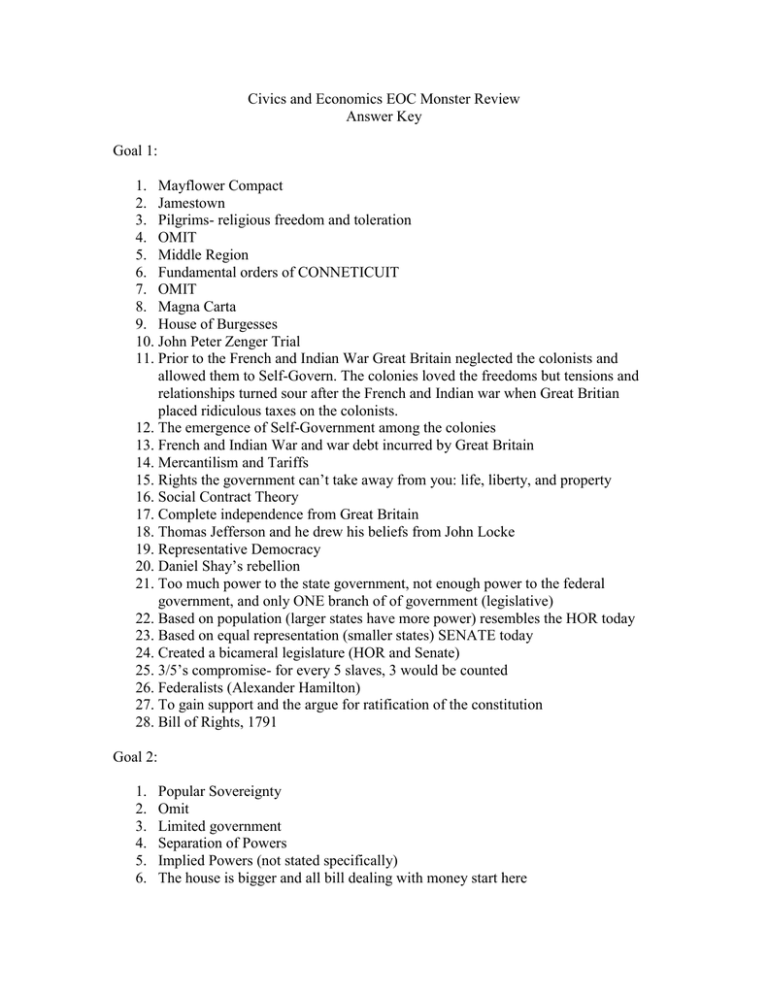
Civics and Economics EOC Monster Review Answer Key Goal 1: 1. Mayflower Compact 2. Jamestown 3. Pilgrims- religious freedom and toleration 4. OMIT 5. Middle Region 6. Fundamental orders of CONNETICUIT 7. OMIT 8. Magna Carta 9. House of Burgesses 10. John Peter Zenger Trial 11. Prior to the French and Indian War Great Britain neglected the colonists and allowed them to Self-Govern. The colonies loved the freedoms but tensions and relationships turned sour after the French and Indian war when Great Britian placed ridiculous taxes on the colonists. 12. The emergence of Self-Government among the colonies 13. French and Indian War and war debt incurred by Great Britain 14. Mercantilism and Tariffs 15. Rights the government can’t take away from you: life, liberty, and property 16. Social Contract Theory 17. Complete independence from Great Britain 18. Thomas Jefferson and he drew his beliefs from John Locke 19. Representative Democracy 20. Daniel Shay’s rebellion 21. Too much power to the state government, not enough power to the federal government, and only ONE branch of of government (legislative) 22. Based on population (larger states have more power) resembles the HOR today 23. Based on equal representation (smaller states) SENATE today 24. Created a bicameral legislature (HOR and Senate) 25. 3/5’s compromise- for every 5 slaves, 3 would be counted 26. Federalists (Alexander Hamilton) 27. To gain support and the argue for ratification of the constitution 28. Bill of Rights, 1791 Goal 2: 1. 2. 3. 4. 5. 6. Popular Sovereignty Omit Limited government Separation of Powers Implied Powers (not stated specifically) The house is bigger and all bill dealing with money start here 7. 2/3 proposal of congress OR 2/3 of state legislatures 8. ¾ ratification of state legislatures or by conventions held by ¾ of states 9. Vice President (Joe Biden) 10. Speaker of the House (John Boehner) 11. Age (35), natural born citizen, and 14 year resident 12. Executive appoints (President); Legislative approves (Senate) 13. Veto, sign it, pocket veto 14. Cabinet (appointed) 15. EPA (Environmental Protection Agency-Oil Spill), IRS (Internal Revenue Service- collects taxes), FEMA (Federal Emergency Management AgencyDisaster relief) 16. Speaker of the House 17. FBI- Federal Bureau of Investigation 18. Department of Homeland Security 19. SAD (Supreme, Appeals, District) 20. 9, 1 chief and 8 associate) 21. Majority 22. Dissenting 23. Concurring 24. Hazelwood v. Kuhlmeier 25. 14th amendment- equal protection clause Goal 3: 1. 2. 3. 4. 5. 6. 7. 8. 9. General Assembly Statute Ordinance Governor (Pat McCroy) Lt. Gov. (Dan Forrest) SASD (Supreme, Appeals, Superior, District) Bus Segregation (separation of races on busing) Leandro v. NC Schools created to solve issues with the public school system. Publically funded but do not have to meet the same standards as Public School system. 10. County Sheriff 11. Governor 12. Sales tax 13. Education and welfare programs 14. Taxes on production of certain goods (beer, wine, gasoline, etc) Goal 4: 1. Careless; and do not vote because of lack of caring 2. Two party system 3. Democrats and Republicans since 1860 4. Radical, Liberal, Moderate, Conservative, Reactionary (left wing and right wing) 5. Platform- where the candidate stands on certain issues. Plank- the single issue. 6. National Party Convention (every 4 years) 7. They form around a certain issue to get their issue more attention. They lobby and inform legislators of their issue. 8. Lobbyists 9. Political Actions Committee (PAC’s) 10. Too much power and inside control with legislatures 11. Citizenship, age, residency 12. Primary- first election to narrow down candidates for final election in November. General- Final election, this election determines the winner. Held in November on the first Tuesday after the first Monday in Nov. 13. To remove an official from office (governor) 14. Based on the # of representatives in the HOR and Senate 15. 538; 270 (majority) 16. HOR 17. Senate 18. 19, Susan B. Anthony 19. 26 20. 14th- Equal Protection Clause 21. 15 Goal 5: 1. SAD (Supreme, Appeals, District) 2. Original 3. Appellate 4. Uphold, Overturn, Remand 5. Civil cases- lawsuits 6. Arbitration- legally binding agreement (act as a judge and parties have to accept the negotiation here). Mediation- non-legally binding agreement (third party neutral person- you do not have to take this negotiation) 7. Consensus- general agreement (made by all parties involved) 8. Felony- serious crime, 1 year or more of prison (rape) Misdemeanor- minor crime, 1 year or less of jail or lesser penalty (drug charge-possession of marijuana) 9. Preliminary Hearing 10. Indictment 11. Arraignment 12. Prosecution (plaintiff’s attorney) 13. Perjury 14. Acquittal- charges dropped (can’t try them again); hung jury- deemed a mistrial and the jury couldn’t reach a unanimous decision (2 choices- drop case or retry it) 15. Plea Bargain 16. Gideon v. Wainwright 17. Due Process, Miranda Rights, Double Jeopardy 18. 5th and 14th 19. Mapp v. Ohio (Exclusionary rule- any illegal evidence is impermissible in court) 20. Korematsu v. US Goal 6: 1. Code of Hammurabi 2. Justinian Code 3. Ten Commandments 4. Administrative Law 5. FDA 6. FCC (Federal Communications Commission) 7. NASA 8. CDC (Center for Disease Control) 9. Precedents and customs (previous court decisions) 10. Put in jail or prison 11. Parole- get out of jail early on good behavior. Probation- obeying a court order. 12. 8th Amendment 13. No Bill of Attainder 14. 4th 15. 6th 16. No self incrimination/I plead the fifth 17. Due Process of Law 18. Double Jeopardy Goal 7: 1. Scarcity (unlimited wants; limited resources) 2. CELL (Capital, Entrepreneur, Land, Labor) 3. Physical- tools, buildings, and machinery used to make other goods and services. Human- the sum of the skills, abilities, and talents through training and education. 4. OMIT 5. Blue Collar 6. White Collar 7. Time missed with friends and good food 8. OMIT (did not use this example this semester) 9. Marginal benefit 10. Productivity 11. OMIT 12. OMIT 13. Division of Labor (breaking a job into smaller parts) and Specialization 14. Division of Labor 15. OMIT 16. A. Variable, B. Fixed, C. Marginal revenue D. Marginal Cost 17. Wealth of Nations 18. The Invisible Hand 19. Lasiezz Faire- hands off government 20. Demand 21. Competition Goal 8: 1. 2. 3. 4. 5. 6. 7. 8. Traditional By the Central Government Individuals Based on the supply and demand and the quantity (surplus or shortage) Markey and Free Enterprise Karl Marx Circular Flow of Economic Activity Workers earn wages and salaries in exchange for labor. This is where resources are bought and sold. 9. Where producers offer goods and services for sale. 10. Decreases (move in opposite direction) 11. Increases (movie in the same direction) 12. Demand will go down 13. Skittles will go down and more people will substitute starburst for skittles. 14. Equilibrium point 15. Surplus or Shortage 16. Shortage-prices go UP; Surplus- prices go DOWN. 17. Spending would be down because people are without jobs. 18. Monopoly 19. Insure fairness to consumers 20. Sole Proprietor (unlimited liability-all liability goes to the owner) 21. Corporation- you only lose what you invest in the corporation (example-buying stocks) 22. Dividends (checks from the corporation after earnings) 23. OMIT 24. Labor Unions Goal 9: 1. 2. 3. 4. 5. GDP OMIT OMIT Expansion, Peak, Contraction, Trough Fiscal- Changes in government spending and taxes (example- cutting taxes to help people buy more and invest more); Monetary- controlling the money supply. 6. Contractionary (tight with money) 7. Expansionary (easy money) 8. A- Expansionary, B- Contractionary, C- Expansionary, D- Expansionary, EContractionary 9. Barter- trading goods for other goods. Monetary- trading money for goods (have a medium of exchange- you know how much money it wil take to make the trade with money) 10. To make loans 11. FDIC- Federal Deposit Insurance Corporation (Insures up to 100K in federal banks backed by the FDIC) 12. Per capita GDP 13. Prices for goods for cost more initially but we would not be dependent on other countries like China as much as we are currently. Goal 10: 1. Civics 2. Duty- requirement (jury duty, attend school, military draft, etc)/Responsibility- something you should do (voting, being infovrmed, etc) 3. Latin for “Out of many, one” symbolizes our American diversity (immigrants from all over) 4. Being open minded to all backgrounds and beliefs 5. CIS Center for Immigration Services PFL: 1. APR- Annual Percentage Rate 2. Bankruptcy 3. Alternative products 4. Principal 5. Interest 6. Dividends 7. OMIT 8. Pay it on time and in full 9. Less 10. Borrowers and loaners 11. Budget 12. Income and expenses 13. Goals 14. OMIT 15. Credit card, debit card, or check
